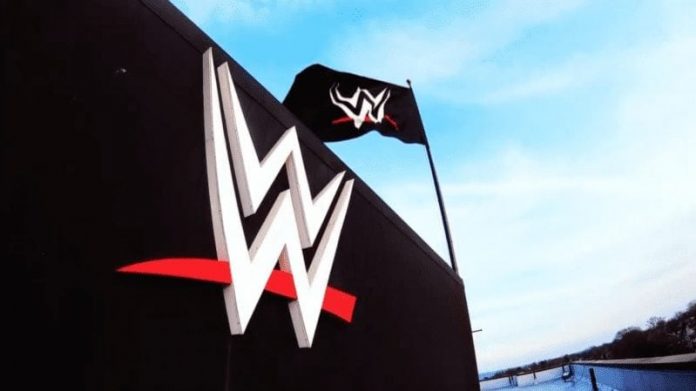
MLW has officially responded to WWE’s motion to dismiss their federal anti-trust lawsuit.
As PWMania.com previously reported, MLW filed the lawsuit back in January, detailing WWE’s alleged “ongoing attempts to undermine competition in and monopolize the professional wrestling market by interfering with MLW’s contracts and business prospects.” You can click here for a full, detailed breakdown of MLW’s allegations against WWE, and what they are asking for. It was then revealed in mid-March that WWE filed a motion to dismiss the lawsuit, which included jabs at MLW for giving up on competing with in-ring products. You can click here for our report on WWE’s motion to dismiss.
Back in March we noted how MLW owner Court Bauer issued a response to WWE’s motion to dismiss, and said he looks forward to the case making it to court.
“Of course WWE is scrambling to dismiss. They don’t want this thing to go to court. I look forward to that opportunity,” Bauer said in March.
In an update, MLW’s response to WWE’s motion to dismiss was issued on Friday, April 22 before the United States District Court, Northern District of California, according to PWInsider. This was the final date they had to file the response. MLW argued that the court should deny WWE’s motion to dismiss.
The response included the following:
“WWE’s motion to dismiss should be denied. WWE impermissibly relies on factual assertions—many provably false—that may not be considered on this motion, and, contrary to WWE’s contentions, MLW has properly pleaded all of its claims for relief.
On the antitrust claim under Section 2 of the Sherman Act, MLW need only allege that the defendant (1) possessed monopoly power in the relevant market and (2) willfully acquired or maintained that power. Here, MLW unquestionably properly alleges both elements. First, MLW has pleaded the relevant market—broadcast rights for professional wrestling programs —and such a single professional sport or form of entertainment can, as courts have repeatedly recognized, constitute a market where, as alleged here, it attracts a unique audience limiting the number of economic substitutes. MLW also alleges that WWE has monopoly power because, among other things, it holds 85% of the relevant market and has reduced the output of professional wrestling broadcasts.
Second, MLW has pleaded that WWE has willfully acquired and maintained that monopoly power by preventing MLW from distributing its programs through Tubi and VICE, by locking up wrestling talent and key networks with exclusivity agreements, and by other conduct to constrain competitors and competition. WWE argues that MLW’s claim is insufficient because, WWE contends, it does not allege facts “suggesting that WWE could possibly hold any power over the dozens, if not hundreds, of networks, cable, and streaming services with which WWE has no commercial relationships.”
However, a Section 2 claim is viable, where, as here, the monopolist “ties up the key dealers.” United States v. Dentsply Int’l, Inc., And contrary to WWE’s assertion, the antitrust laws are designed precisely to protect against WWE’s predatory acts preventing MLW from gaining a foothold in the market because those acts clearly injure competition in general. On MLW’s intentional interference with contractual relations claim, MLW alleges that it lost its Tubi contract as a result of Stephanie McMahon of WWE pressuring Tubi and Fox executives “to deny MLW a time slot that would compete head-to-head with WWE’s NXT programs” and “to terminate the agreement [with MLW] in its entirety.”
Contrary to WWE’s assertion, Rule 8(a) of the Federal Rules of Civil Procedure does not require MLW to detail, before discovery, WWE’s threats that led to the termination of the Tubi contract, particularly given that many of those details are peculiarly within WWE’s knowledge. While WWE claims that it is not plausible that it would threaten Fox because Fox is its principal distributor, that is not so and at most raises a factual issue precluding dismissal. In fact, courts regularly uphold as plausible claims based on defendants threatening their principal distributors and MLW alleges conduct by WWE no different from and no less plausible than that of those other defendants.
MLW has also properly alleged that WWE intentionally interfered with prospective economic relations by alleging that WWE’s threats to VICE led that company to abandon its negotiations with MLW to air new MLW content. WWE incorrectly contends that MLW must also allege that WWE knew specifically that the parties were negotiating the airing of MLW’s new content. Under California law, however that is not so—MLW need only plead, as it clearly does, that WWE knew that its actions would interfere with VICE and MLW’s economic relationship. As to MLW’s UCL claim, MLW has statutory and Article III standing because it alleges that WWE’s conduct was directed at harming MLW’s relationship with Tubi, a California resident, and MLW seeks to enjoin WWE from continuing to undermine MLW’s business. Accordingly, and as shown further below, the motion should be denied in its entirety.”
MLW then argued that all existing allegations stand under scrutiny and asked the court to rule that the lawsuit should continue, or at the very least, allow MLW the chance to repair any flaws in the pleading that the court may side with WWE on. MLW also noted that they are not currently bound to reveal all details of their allegations of tampering by WWE.
MLW’s response also argued that WWE’s previous claim on how AEW had entered the marketplace “refutes the existence of substantial barriers to entry” for the pro wrestling business was a flawed argument, that WWE had blocked AEW from two arenas, which were not named, and that WWE listed the very same barriers in their own corporate business filing, noting that “failure to recruit or maintain key performers ‘could adversely affect [WWE’s] operating results.’”
WWE has until Monday, May 16 to respond to this latest filing by MLW. The court will then make a ruling.
There are no hearings planned for the case until Thursday, September 29.
MLW is seeking a jury trial. They are also asking for compensatory, treble and exemplary damages, and an injunction barring WWE from “inflicting further irreparable harm through its anticompetitive and tortious conduct,” and legal costs.
WWE provided the following media statement back in January when the lawsuit was first filed: “WWE believes these claims have no merit and intends to vigorously defend itself against them.”
Stay tuned for more as we will keep you updated.







